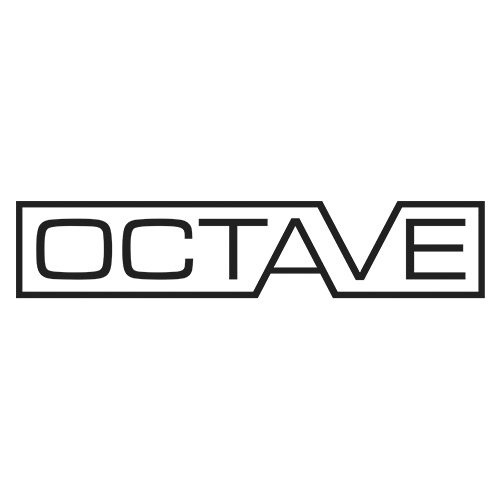


OCTAVE : Filter 3-P XLR
It is almost impossible to find modern hi-fi systems lacking some level of digital signal processing today. The classic CD player has largely become obsolete, having been replaced by Internet-based sources, supplemented with hard disk storage media. This evolution means that signal connections to a network at the digital level are necessary to enable the interaction of the components.
Today's modern audio systems feature a number of digital and analog signal connections, to which a number of connections to the home's mains power are made. The modern household also features many systems and devices equipped with switching power supplies (e.g., LED lighting systems, laptop, solar panels) and radio controls (such as WLAN, etc.).
All these systems emit interference that affects nearby audio components and thus the overall sound quality of the hi-fi system.
Often an attempt is made to protect the system from interference by means of mains filters. However, this protection is very limited, as system filters work systemically only at very high frequency ranges and can in fact negatively affect the dynamics of a system. Disturbances in the important audio range are therefore unrestrictedly admitted to the audio system despite network filters and are distributed uncontrollably via the signal wiring. To eliminate the problem of propagation of conducted EMI, Octave has developed the Filter 3-P, a filtering system that acts directly in the path of interference, namely the analog signal cabling.
The Filter 3-P is a passive filter system designed to be connected between the DAC and pre- or integrated amplifier. It is fitted with single-ended RCA as well as balanced XLR connections. Thanks to the innovative filter technology, the same high level of effect is achieved via either RCA as XLR.
The core of the Filter 3 is a highly specialized broadband interference suppression transformer.
The art of filter 3 was not to influence the signal, but to block interference from the bass region to the highest audio frequencies. The Frequency range of the Filter 3 spans from 10 Hz to 150 kHz / -1.5db, while the noise attenuation reaches about -80db at 1 kHz. This corresponds to a reduction of common-mode noise by a factor of 10,000. Compared with the attenuation of a line filter in this frequency range of -20 dB (corresponds to factor 10), this is a huge increase in the filter effect. (see diagram 1).
Digital-to-Analog converters particularly benefit from this measure because medium and high frequency disturbances negatively influence the sound-sensitive jitter behavior of these devices. Conversely, analog amplifiers benefit from the higher signal purity. Interference of the music signal with residual interference in the audio range is reduced, and the sound gains clarity, making even the smallest background details perfectly audible.

| Specifications | |
| Frequency response | 10 Hz – 150 kHz / ± 1 dB |
| Noise suppression (CMRR) | > 80 dB / 10 kHz |
| Harmonic distortion (THD + N): | < 0,001 % / 1 kHz |
| Recommended output resistance DAC etc. | < 600 Ohm XLR; < 300 Ohm RCA |
| Recommended input impedance preamplifier | > 10 kOhm |
| Features | Built in a metal case milled from solid, magnetically optimized steel and cast in resin. Ground switch for ground separation of input and output to prevent ground loops |
| Weight | 3,6 kg |
| Dimensions | 70 x 75 x 186 mm (W x H x D) |

